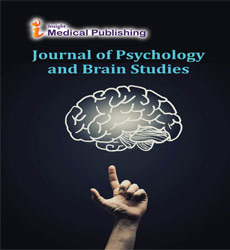Book Review ‘Islam, Kosmologi Baru, dan Agama Baru’ (Indonesian Version)
Researcher, History Programme, Faculty of Social Sciences and Humanities, UKM-43650, Bangi Selangor, Malaysia
- Corresponding Author:
- Uqbah Iqbal
Researcher, History Programme
Faculty of Social Sciences and Humanities
UKM-43650 Bangi Selangor, Malaysia
Tel: +60389215555
E-mail: uqbah@siswa.ukm.edu.my
Received Date: August 25, 2017; Accepted Date: September 04, 2017; Published Date: September 08, 2017
Citation: Iqbal U (2017) Book Review ‘Islam, Kosmologi Baru, dan Agama Baru’ (Indonesian Version). J Psychol Brain Stud. Vol. 1 No. 2: 12.
Copyright: © 2017 Iqbal U. This is an open-access article distributed under the terms of the Creative Commons Attribution License, which permits unrestricted use, distribution, and reproduction in any medium, provided the original author and source are credited.
Opinion
Edited by Ni’matul Masfufah, this book becomes important, because along with the continuing development of science, the signs that have been predicted in the early 21st century, are more likely to occur and close to reality. This book provides assumptions and predictions about future science related to the future of spirituality and human religion. The science has two faces. If we consider that what we see in the science phenomenon is "a perfect reality," we will see science as "just" the truth of the senses. Science once established that absolute truth is based on the senses alone. This view is called "scientism". Therefore, the question now is, "Is there something that is outside of science?" Scientism will answer no. Truth is only a material truth that can be described by law alone. Against the views of scientism that are now abandoned by people is very interesting. Because, now one can see "signs" that science can bring us to something that is beyond the sciences, the so-called "unity of being" or "the unity of God", wahdat al-wujud, manunggaling kawula-Gusti, or if we follow the language of Islamic theology termed the essence of tawhid. Of course, the signs are not "proofs", but they are still "things" that we need to pay attention to. Is not the phenomenon of the universe a "verse" (the sign of God's existence and greatness)? This book that the author edit and processed from various writings of these experts, put forward the debate and process, how science can lead someone to ma'rifatullah?
Frank J. Tipler, one of the few physicists who pursue a special field of physics "vanguard" who studies the theory of global general relativity created by the most famous late-century physicist Stephen Hawking, once made a somewhat controversial statement to scientists of his time, that; "Theology can be derived directly from the laws of physics". So Tipler assumes that he has "come to the evidence of God's truth in exactly the same way as a physicist calculates the properties of an electron. This shows that Judeo-Christian theology is really true." And finally Tipler concludes that theology (religion) must be a branch of physics. Tipler's opinion was not expressed alone, because since the 70s there have been books like The Tao of Physics by Fritjhof Capra and The Dancing Wu Li Masters by Gary Zukav who attempts to show how the latest discoveries of modern physics are aligned with religious eastern worldview.
Of course, the phenomenon is fully supported by the clergy, because in addition to undermining the assumption/myth of science that is contrary to religion, as well as religious truth that is always maintained, this gets additional evidence coming from science which in general is already a proven truth. But the "quite harmonious" development does not work alone. Along with the discovery of "evidence" unearthed from the most recent discovery of Science, some scientists can see the entirely opposite in the same coherent theoretical science. Carl Sagan theoretical scientific novelist, Contaxt (1998) for example, commented on Stephen Hawking's book, A Brief History of Time best-selling like hotcakes, as "a book about God ... or even (about) His absence" at all. There, Hawking talks about the possibility of knowing the "mind" of God if the last part of his theory of the origin of the universe has been discovered. The theory is called an integrated theory with Einstein's General Relativity paradigm and Quantum Mechanics.
Open Access Journals
- Aquaculture & Veterinary Science
- Chemistry & Chemical Sciences
- Clinical Sciences
- Engineering
- General Science
- Genetics & Molecular Biology
- Health Care & Nursing
- Immunology & Microbiology
- Materials Science
- Mathematics & Physics
- Medical Sciences
- Neurology & Psychiatry
- Oncology & Cancer Science
- Pharmaceutical Sciences
